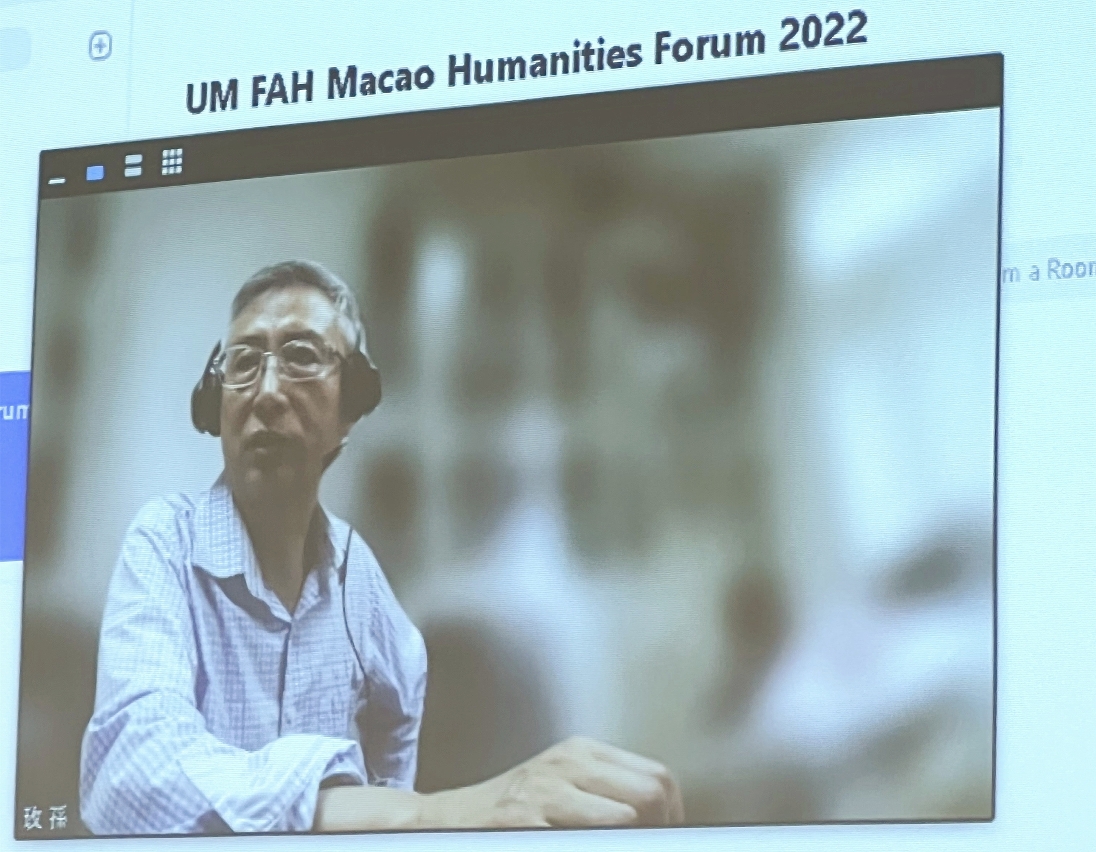 Sun Mei
Sun Mei
The University of Macau (UM) Faculty of Arts and Humanities (FAH) recently held the Macao Humanities Forum. The event featured Sun Mei, professor of the Department of Chinese Literature at Taiwan Central University, who delivered a lecture titled ‘On Cross-gender Performance’ on the internet. Involving both virtual and in-person elements, the event attracted nearly 200 participants, including faculty members and students of UM.
At the forum, Joaquim Kuong, assistant dean of the FAH, introduced the different types of Chinese opera Xiqu. Afterwards, Xu Jie, dean of the FAH, shared with the audience Prof Sun's rich academic experiences and achievements in the fields of Chinese opera Xiqu, comparative theatre, and cross-cultural studies, as well as his deep connection with UM. During the lecture, Prof Sun firstly explained the definitions of cross-gender performance and fanchuan in theatre. He then briefly discussed the influence of cross-gender performance on the art of theatrical performance from various perspectives, such as costume, make-up, performance, interaction between performers, and the relationship between performers and audience. In addition, Prof Sun discussed the socio-historical reasons for the emergence of cross-gender performance by citing examples from traditional Japanese theatre, William Shakespeare’s Elizabethan play The Merchant of Venice, and the film Shakespeare in Love.
After the lecture, UM faculty members and students, as well as online participants, had a discussion on the theme with Prof Sun. Held every academic year, the forum aims to provide a platform for world-renowned scholars from different humanities fields to share their latest research results with the UM community and local teachers and students. This was the second lecture of the forum in the 2022/2023 academic year.



